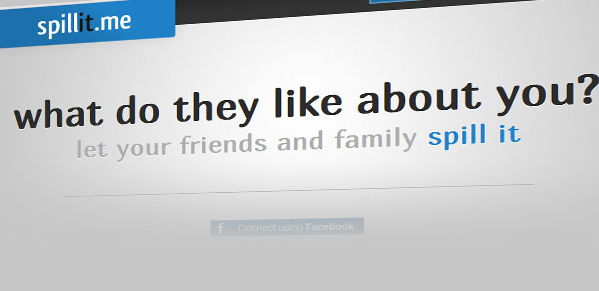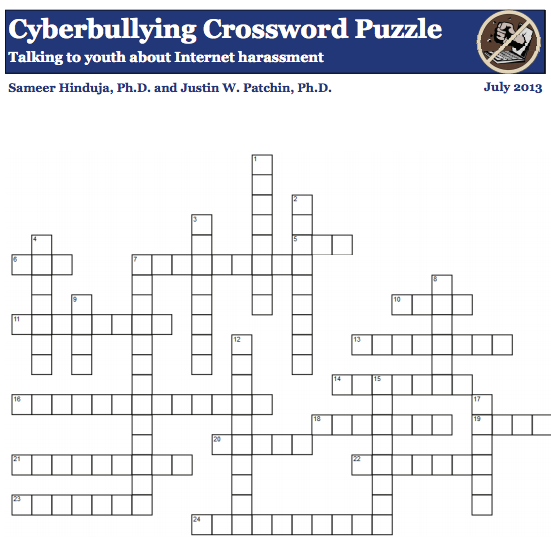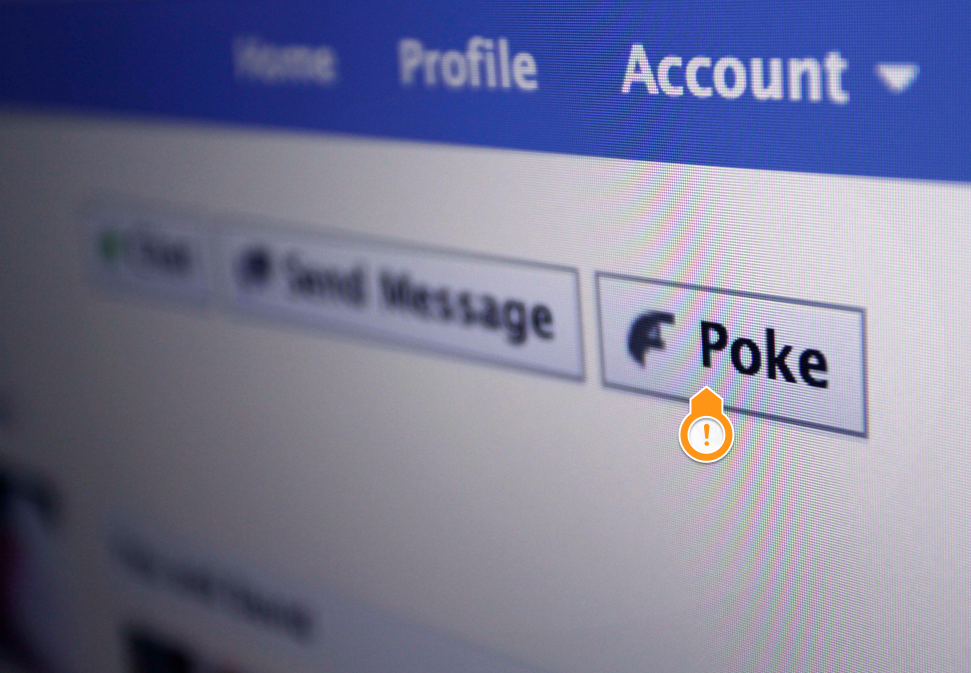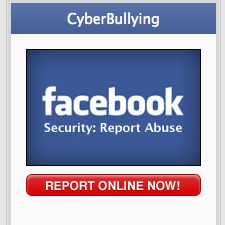Cyberbullying is not a new concept. Parents around the world understand the importance of monitoring their child's use of the internet, but the constant evolution of social media sites creates an abundance of obstacles for even the most diligent parent. Teenagers have the tendency to stay one step ahead of adults when it comes to finding new avenues of peer interaction on the internet. One dangerous social networking site that many parents may not be aware of is Ask.fm.
Is Your Child Ready for Facebook? Some Factors to Consider
Parents hear a lot of conflicting things about Facebook these days. First of all, it looks like children have stopped communicating in person and started communicating more over the internet. There is a certain safety in this kind of communication. If you say something the other person doesn’t like, at least you don’t have to deal with the consequences right away. It gives you more courage to express what you feel. However, people do say hurtful things over the internet as well, and cyberbullying is as real a problem as in-person bullying. If you're wondering, "Is my child ready for Facebook?" then keep the following factors in mind:
1. Age: Is your child over the age of 13? If not, you will be in direct violation of Facebook’s policy. You’ll be lying about your child’s age and setting a bad example for him/her. So take your time and wait until your child is the official age. You’ll have less to worry about, and s/he will also be more mature by the time s/he starts social networking.
Cyberbullying Laws Implemented at State Level: Will it Matter?
Cyberbullying has now been deemed a cultural problem by some media outlets, and it might have to be blamed on the contentious media culture that people see. Since federal laws on cyberbullying are still non-existent, one has to wonder how existing state laws on cyberbullying are working. As of now, 34 states have cyberbullying laws, even though we still hear so much about kids being harrassed online in every state.
But what new states are joining the fray? And will state laws make any real difference without federal action?
Oklahoma the Latest to Pass a New Law
Recently, the anti-bullying law Bill 1661 was signed into law in Oklahoma by the state's governor, Gov. Mary Fallin. While it addresses the problem of bullying in general, it specifically hones in on cyberbullying so schools can use law enforcement to intervene. The bill allows schools to keep internal records of
The Connection Between Sexting and Suicide
Here is a very interesting and shocking article in Psychology Today by Elizabeth Meyer, Ph.D about sexting and suicide. Even though it is from 2009, most of the article still rings true, and unfortunately not much has been done to help victims of sexting cases that got out of hand and the bullying/cyberbullying that almost always follows.
Cyberbullying: Why Spillit Needs To Be On Your Radar
The internet and mobile devices are continually evolving. New applications and websites are developed each day and shared with the world. While many fade into obscurity or into their niche worlds, others truly take off and become more than just another app. While many of these trendier applications are meant for good, their impact and effects can be very detrimental and harmful. One of the newest applications available is known as Spillit, an application that has become as much about cyber-bullying as it has social connection. The following explains more about this new application and why parents, adults, and children should all be aware of its potential dangers.
What Is It?
Spillit is an application that has users create a login name and password to participate on the site. The ultimate goal of the page is to ask other users what they think about that individual. With a limited number of characters, other frequenters to a user’s page can answer the question. This is meant to help learn about each other and create a social connection via the page.
Kids And The Internet - Research Tool or Danger Zone?
While there is undoubtedly a lot of potential for finding knowledge and quickly assembling research via the Internet, kids that use search engines and social networks for school and pleasure can end up facing significant dangers.
FBI Calls Cyberbullying a 'Significant Issue' For Law Enforcement
This article was originally published on Digital Journal by Marvin Dumon. It can be accessed here.
Cyberbullying can be more pervasive than traditional forms of bullying. Bullying at school as well as pranks can be more easily detected by teachers, administrators and fellow students.
A recent bulletin on cyberbullying and sexting published by the Federal Bureau of Investigation (FBI) advises law enforcement agencies across the U.S. that “the growth of cell phones and Internet usage among teens has altered youth social and conduct norms.”
The FBI cyberbullying report adds that “cyberbullying is one of the most significant new issues law enforcement has to address. Anecdotal and research-based accounts from police across the nation depicted a lack of clear guidance, training, and support. This is unfortunate because bullying is an age-old problem with recent forms often relying on technological devices and mediums.”
Cyberbullying Crossword Puzzle for Kids
By Sameer Hinduja and Justin W. Patchin
A crossword puzzle to be distributed to youth to promote discussion about cyberbullying.
A look at the clues, download the PDF here:
ACROSS
5. Acronym for the company that provides an Internet connection to individuals or companies.
6. Short for “World Wide Web” or pages linked together via the Internet
7. A wireless handheld device which allows for telephone communications.
10. Interactive web journal or diary, the contents of which are posted online and then viewable by some or all individuals.
11. An electronic device that stores and processes information and also facilitates electronic communication when connected to a network.
Study Finds Links Between Cyberbullying and Adolescent Depression
A new study in the Journal of Adolescent Health reports that teenagers who experience cyberbullying are more likely to develop negative responses such as depression and addictive behaviors.
The study's lead author, Dr. Manuel Gamez-Guadix of the University of Deusto in Spain, said that it is important to understand how cyberbullying impacts adolescent health. While many adolescents both become cyberbullying victims and also bully others themselves, those that experience cyberbullying attacks for six months or longer are more likely to experience problems such as depression or substance abuse.
Poke... Thanks Facebook. You Just Made Digital Parenting Harder.
With the advent of social media and the fact that kids are spending more time on the internet now more than ever, parents need to be extra sure to pay special attention to what their kids are getting into online. In the past, one of the biggest concerns you might have had as a parent dealt with the kind of kids that your child spends a lot of time with. Now, social media sites such as Facebook give kids an outlet that can reach quite literally the majority of the people that your child may know. This can be just fine if your children are trustworthy and responsible with what they share, but some children cross the line, whether it has something to do with sexting, cyberbullying, or making inappropriate comments.
The 10 Most Used Cyberbullying Tactics
No one wants to see their child being bullied. As bullying becomes more and more prevalent in the media, it has become obvious that bullying no longer just takes on the "Steal your lunch money" tactics of past generations.
Cyberbullying is, in many ways, more intense than in-person bullying. Cyberbullying acutely targets a child's insecurities, making the emotional and psychological bruises far more permanent than the traditional punch or swirly. Cyberbullying allows bullies to feel anonymous, freeing them up to say harsher, more pervasive things than they might say in person. Cyberbullies generally face fewer consequences- unlike in a traditional school context, there are no adults monitoring for signs of abuse on a regular basis, so unless a parent, guardian, or school official is tipped off to the problem, it can go unpunished for a substantial amount of time.
Peer Pressure to Curb Cyberbullying
Cyberbullying is an issue most parents are new to. How do you deal with and battle this digital-age problem?
Unfortunately, there is no policy or procedure manual for this issue. Parents often times look to the schools for assistance in battling cyberbullying. One method some schools and parents have found to be effective is utilizing the idea of peer pressure. Peer pressure can be a great and moving tool when it is used for the greater good. Teachers use peer pressure in their classrooms in order to manage the classroom. A way they use it is giving the students in the classroom the forum to pressure their peers into turning their work in on time, quieting, and following the procedures of the classroom effectively and appropriately.
Cyberbullying on Facebook: How Parental Monitoring Can Prevent It
It's a common question when kids start hitting their tween years. They begin to grow larger friend groups, become more entwined with their social circles, and form new connections. They're beginning to develop some independence from mom and dad, and with that, the question always comes up: "Mom, Dad, can I make a facebook?"
Of course, this begs the question from moms and dads everywhere: How do I prevent cyberbullying? After all, today's news is rife of stories of children using the internet to harass one another, sometimes to the point where young lives are lost. It's a reasonable fear, and a difficult question to answer. The answer, of course, is to monitor your children's facebook page to ensure that communications are appropriate. Of course, there is always a balance between monitoring your children and giving them some level of independence.
The act of monitoring your child's social media accounts is not an unusual one, either. According to the LA times, almost two thirds of American parents monitor their children on facebook, and with good reason. In an era where the internet gives anonymity to almost anyone, kids are liable to make poor decisions. The worry isn't just that your child will be bullied, either. There is just as big a concern that your child will become the bully.
Don’t Give in to Sexting This Summer
Our latest guest post for Internet Safety Month comes from Judge Tom Jacobs, the founder of AsktheJudge, an educational website for teenagers and the laws that affect them. Here is his take on a big issue affecting teenagers both legally and socially today: sexting.
As you know, it only takes a few seconds to pull up your shirt or drop your pants, snap a picture and send it to a love interest. Regardless of your reason for sexting, think twice before actually doing it. It’s an act that may change, or even end, your life.
Your state may have a sexting law. You may or may not know about it or what it says. If you Google the name of your state and “sexting laws” you can read about the consequences for sexting someone. The fact that your state doesn’t have such a law isn’t a green light for you to go ahead and send a sext message or photo to even your closest friend. This is the Internet we’re dealing with. Every post or image has the potential to enter cyberspace and go viral. You can’t take it back once you hit “send” no matter how many times you go back to hit delete or trash.
Consider the case of 13-year-old Hope Witsell. It started out as flirting, but quickly turned into a nightmare. Hope was in middle school when she sent a topless photo of herself by text to a boy she liked. However, it was intercepted by a girl who had borrowed the boy’s cell phone. The girl forwarded the photo to friends and it spread to several schools.
Crack Down On Summer Vacation Cyberbullying
With summer vacation just around the corner, kids have much more free time on their hands for social networking than they did during the school year. With that absence of face-to-face contact and communication that kids are normally exposed to during school hours, cyberbullies are provided a “protective shield” from real-life consequences. Hiding behind the safety of a keyboard, bullies feel invulnerable to any possible negative repercussions of their behavior, making them far more vicious in their attacks. Consider the following few tips on keeping your kids safe from cyberbullying this summer vacation, when decidedly taking preventative measures, or if your child falls prey to one's attacks. Be sure to instruct your children on the proper procedures to execute if they encounter online harassment.
Don't Fight Fire With Fire
Cyberbullying: The Role Teachers Play
Parents and teachers are forced to long for those days when bullying mostly ended up with school authorities suspending the bully and calling in parents of both parties. Schools do boast of counseling sessions and preventive measures to stop bullying but the offense has taken a new form which is making it more and more difficult for both educators and parents to control. As the only exercise for more and more teens is flexing their fingers on the keyboard of their computer or phone, their cyberbullying, at some point or the other, does step into their virtual lives. The main problem is that traditional bullying was more visible than cyberbullying. It happened mostly on school premises and even if it didn’t, there was always some proof of harassment or some kind of supervision that could put a stop to the act. In its most dangerous form known as cyberbullying, the mere detection of the problem is very difficult. Prevention and long-term effects are even more unmanageable.
Justin Patchin, an Associate Professor at the University of Wisconsin-Eau Claire and Co-Director of Cyberbullying Research Center, spoke in an interview about how cyberbullying has teachers baffled as to what role they can play in stopping it. It has managed to give teachers more to worry about than just the falling grades of their students. Recognizing it as more or less new phenomena, Patchin encourages school authorities to avoid keeping cyberbullying at the end of their priority list.
Star Wars Kid Speaks Out Against Cyberbullies
If your child becomes the victim of cyberbullying, will he or she have the tools to cope? Parents of cyberbullied kids can do a lot to help, but one important one is making sure that they have access to positive role models. One of these is Ghyslain Raza, more popularly known as “The Star Wars Kid”.
In 2003, Ghyslain Raza was an ordinary ninth grader in Quebec. He was trying out for a school Star Wars skit, recording himself stage fighting with a golf ball retriever for a light saber in his high school's TV studio. Without his knowledge, classmates found the video and posted it online, where it became one of the first viral videos on the Internet.
Cyberbullying Makes Its Way To Instagram
It was only a matter of time: cyberbullying has come to Instagram.
In only one of the most recent incidents, a police report was filed against several girls in a northern California school district for cyberbullying on Instagram. According to school officials several girls allegedly hacked into their victim’s Instagram account, then posted demeaning and “sexually derogatory information” on the twelve-year old’s account. The victim’s mother believes the girls took this action to get back at her daughter after she complained about being bullied at school. It took filing a police report to get the offensive material removed.
Cyberbullying Watch: Everything You Need to Know About Ask.fm
Parenting kids in this modern age comes with challenges that our own parents never had to face. The advent of the internet presents modern parents and their children with unlimited opportunities, both good and bad. One of the main challenges that you face as a modern parent is keeping your child safe online. That makes knowledgeable digital parenting one of the most important components of being a responsible parent these days. The tween and teen years have always been fraught with angst, raw emotion, and social upheaval; it's just a natural part of making the transition from child to adult, but the internet has created a new level of trouble for this already fragile time.
Teacher Gives "Cyber Ninjas" Social Network Training Wheels
Beth Gentrup at Norfolk Junior High in Nebraska is providing seventh-graders Social Network training wheels in the form of an elective course called "Becoming a Cyber Ninja." The course teaches about a wide variety of topics meant to protect online users and promote proper online behavior. This means addressing topics like cyberbullying, stalking, identity theft, and uses of personal information.


2.jpg)














.jpg)
